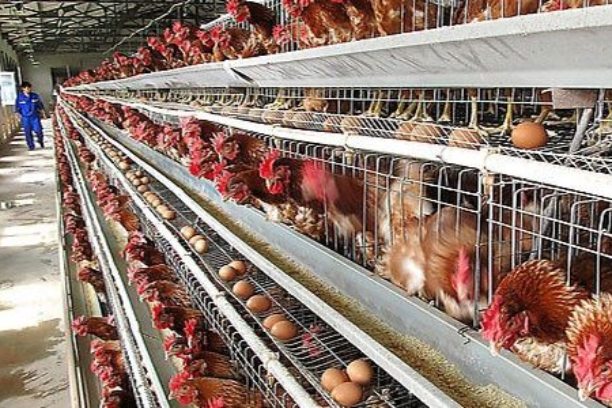A Beginner’s Guide to Layer Farming in Cape Verde
Time : 2024-09-21
Layer farming represents a promising opportunity for agricultural development in Cape Verde, an archipelago known for its rich culture and unique landscapes. With the growing demand for eggs as a staple food source, understanding the nuances of layer farming is essential for both new entrants and existing farmers looking to optimize their operations. In this guide, we will explore effective practices, critical considerations, and the best layer farming strategy in Cape Verde.
Understanding Layer Farming
Layer farming involves raising hens specifically for egg production. Unlike broiler farming, which focuses on meat production, layer farming prioritizes the health and productivity of hens to ensure a consistent supply of eggs. The right approach can lead to profitable outcomes, making it vital to develop a structured layer farming strategy in Cape Verde.
Key Considerations for Layer Farming
1. Choosing the Right Breed
Selecting the appropriate breed of layer hen is crucial for successful farming. Popular breeds, such as Leghorns and Rhode Island Reds, are known for their high egg production rates and resilience. Farmers should assess local climate conditions and feed availability when making breed selections, ensuring the chosen birds can thrive in Cape Verde’s environment.
2. Housing and Environment
Creating a conducive living environment for your layers is fundamental to their productivity. Proper housing should provide:
- Ventilation: Adequate airflow minimizes heat stress, especially important due to Cape Verde’s warm climate.
- Space: Each hen requires enough space to move freely, reducing stress and preventing pecking issues.
- Nesting Boxes: Providing comfortable nesting boxes encourages hens to lay eggs, increasing overall production.
Implementing these elements in your layer farming strategy in Cape Verde sets the stage for healthy, productive hens.
3. Nutrition and Feeding
A well-balanced diet is a cornerstone of productive layer farming. Hens require a diet rich in proteins, vitamins, and minerals. Formulating feed that meets their nutritional needs will promote optimal growth and egg production. Additionally, consider local feed sources and supplements to enhance the diet without incurring excessive costs.
Some essential components to include in a layer’s diet are:
- Grains: Corn and wheat form the base of most poultry diets.
- Protein Sources: Soybean meal and fishmeal can significantly aid in meeting protein requirements.
- Calcium Supplements: Essential for strong eggshell formation; crushed oyster shells are a good option.
Regularly monitoring feed quality and consumption is vital for adjusting the diet based on the hens’ changing needs throughout different laying phases.

4. Health Management
Preventative health care is critical to maintaining a productive flock. Implementing biosecurity measures helps minimize disease risks. Key practices include:
- Cleanliness: Regular cleaning of coops and equipment reduces disease transmission.
- Vaccination: Consult with veterinarians to establish vaccination schedules for common diseases affecting layers.
- Monitoring: Observe hens for signs of illness or distress, allowing for prompt intervention if necessary.
Incorporating a robust health management plan into your layer farming strategy in Cape Verde ensures the longevity and productivity of your flock.
5. Record Keeping
Maintaining accurate records is vital for evaluating farm performance and making informed decisions. Records should include:
- Feed Consumption: Track how much feed each batch of hens consumes.
- Egg Production: Monitor daily egg production rates to identify trends or issues.
- Health Records: Document any health interventions and responses to treatments.
This data enables farmers to refine their layer farming strategy in Cape Verde, leading to enhanced productivity and profitability.
6. Marketing Your Eggs
Having a solid marketing plan is essential for selling your products effectively. Identify potential markets, which may include:
- Local Markets: Selling directly to consumers can offer higher prices and increase community engagement.
- Restaurants and Hotels: Establish relationships with local businesses that require a steady supply of eggs.
- Retail Outlets: Explore opportunities to place your eggs in local grocery stores or supermarkets.
Developing branding strategies, such as emphasizing the freshness and quality of your eggs, can also help differentiate your product from competitors.
7. Sustainability Practices
As environmental consciousness grows, implementing sustainable practices in layer farming becomes increasingly important. Here are some strategies to consider:
- Waste Management: Composted manure can be repurposed as fertilizer, contributing to soil enrichment.
- Water Conservation: Implement drip irrigation systems to minimize water waste during poultry farming.
- Renewable Energy: Using solar panels can reduce energy costs associated with heating and lighting hen houses.
Adopting sustainability practices can not only improve the ecological footprint of your business but also attract customers who prioritize environmentally friendly products.
Conclusion
Layer farming presents a viable opportunity for economic development in Cape Verde. By implementing a comprehensive layer farming strategy in Cape Verde, new farmers can effectively address local food demands while promoting sustainable agricultural practices. From selecting the right breed to developing marketing strategies, attention to detail at every step will contribute to a successful layer farming operation.











